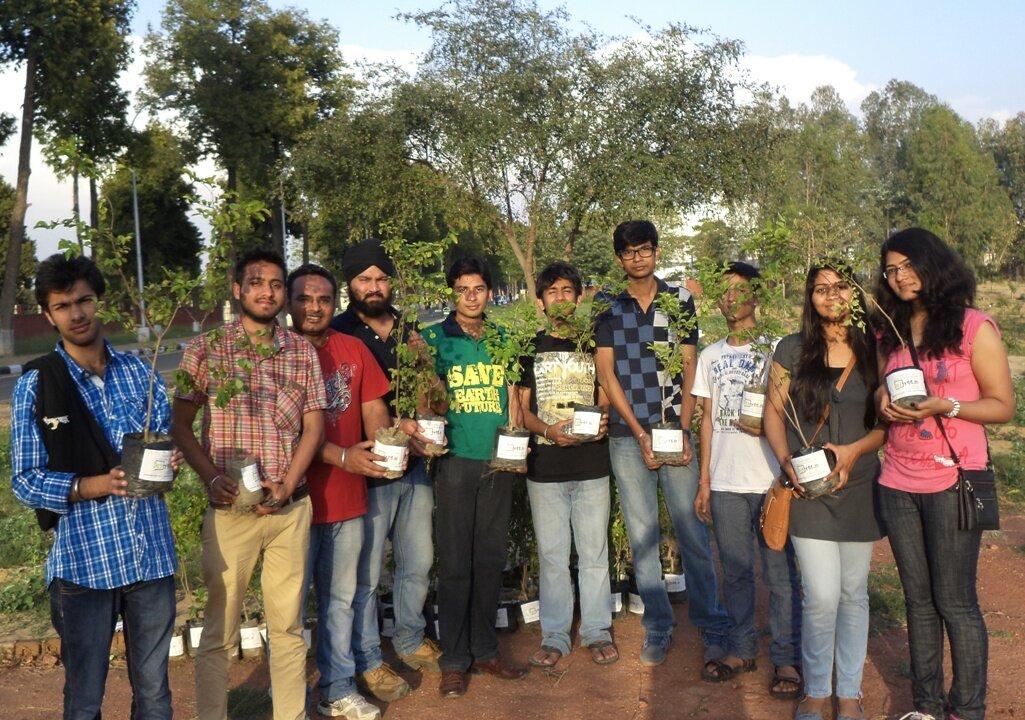The passion and commitment of a single man led to the planting of about 25,000 trees in the south-eastern Indian city of Patiala in Punjab in the past three years—a selfless effort to revive the green cover of this historic city.
Rajneesh Kumar, the research scholar and president of the Paryavaran Welfare Society (PWS) said that, “Action speaks louder than mere education in the form of lectures.” He is happy to report that “villagers are now getting involved in caring for trees.”
Villagers at the different PWS planting sites volunteered to help maintain the saplings. They became members of the organization, thus creating awareness and involving the local community.
The PWS was established in 2009, as an initiative to maintain biodiversity, protect “paryavaran” (the environment), and conserve energy resources at a local level. To keep an eye on saplings’ survival rate, the team visits every site after fifteen days.
“The tree saplings planted by our organization are growing in healthy condition and their survival [rate] is above 90 percent.”
According to a report by the Forest Survey of India (FSI), forests cover about 23.81 percent of the country—about 486,000 square miles (78.29 million hectares).
Fifteen Indian states registered a total increase of 3,100 square miles (5 million hectares) in their forest cover with Punjab leading with an increase of 62 square miles (10,000 hectares). In hill and tribal districts in the nation, there was a decrease of about 370 square miles (60,000 hectares).
“In the first step, by the end of year 2013, we will try to make district Patiala fully clean and green,” Kumar said.
Kumar started out by planting trees in a variety of locations—cremation centers, water supply centers, and along waste-water drains—as a part of a research project.
“I planted around 60,000 tree saplings of Jatropha curcas [Barbados nut] during that initial period,” he said. “As time progressed, I have attained a passion to work for the betterment of our environment and social improvement at the village level.”
India boasts a significant biodiversity, however, India’s forests are under tremendous pressure due to heavy grazing, exposure to wildfires, and deforestation. Deforestation is particularly an issue in areas where coal mining is taking place.
Though the tree cover has increased in some regions, the government and environmental organizations continue to guard against the irreversible soil erosion, decreased soil fertility, downstream flooding, diminished biodiversity, and additional rural poverty that accompanies deforestation.
In the coming years, the organization plans to expand its activities to include addressing problems like floods, global warming, and drought.
He said, “In the long run, we plan to [expand] our awareness campaign [on a] large scale to motivate the people and youth to work for the betterment of our environment.”




